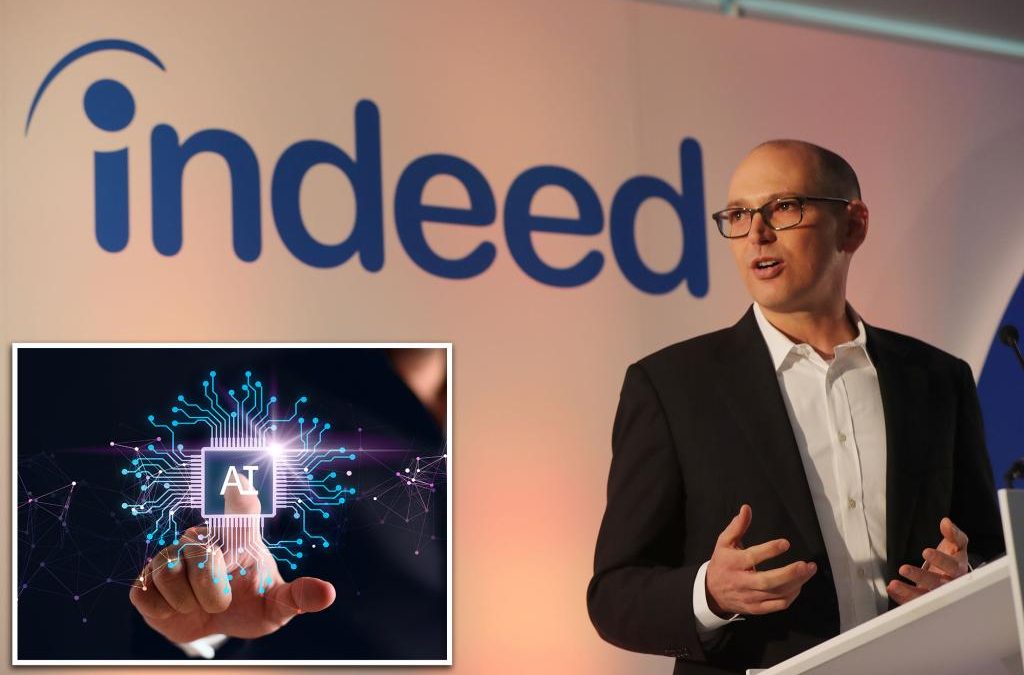The boss of job-hunting website Indeed.com said college students are shelling out thousands to attend schools that are teaching skills that soon could be rendered “obsolete” thanks to artificial intelligence.
“With AI, it’s conceivable that students might now find themselves learning skills in college that are obsolete by the time they graduate,” Indeed CEO Chris Hyams wrote in a column in Fortune.
Hyams, who has led the site since 2019, said recent waves of technological innovation have turned the travel, retail and music industries “upside down … within a decade,” faster than “the effects of the Industrial Revolution, [which] gradually accelerated over many generations.”
“So yes, I have considerable concerns about AI,” he wrote in the Thursday column.
As Hyams proposes that a bachelor’s degree may not offer the skills that AI does, the tech is finding its way into the classroom.
College professors have reportedly caught dozens of students cheating by using OpenAI’s AI-powered bot ChatGPT models, pushing the profs to revert to paper exams this fall.
Timothy Main, a writing professor at Canada’s Conestoga College, told the Associated Press that he had students turn in assignments that were lifted word for word from ChatGPT without even bothering to read what they had copied.
“I had answers come in that said, ‘I am just an AI language model, I don’t have an opinion on that,’” Main said.
As a result, Main and his colleagues are overhauling the school’s required freshman writing course to include writing assignments that will be more personalized to encourage students to write about their own experiences, opinions and perspectives.
In addition, all assignments and the course syllabi will have strict rules forbidding the use of AI, though models like ChatGPT have already proven that it can match — or in some cases outperform — humans in several fields, including in higher-education institutions.
Research out of UCLA published in July found that ChatGPT “performs about as well as college undergraduates” when it comes to reasoning questions that often show up on standardized testing.
The language learning model has proverbially graduated to higher education since late 2022 when its “clean” writing style was described to The Post as that of “a very smart 12th-grader” by Furman University assistant philosophy professor Darren Hick.
UCLA’s study harnessed ChatGPT-3 to be tested against 40 undergrad Bruins in Southern California. However, OpenAI has since debuted a more advanced GPT-4 model, which outdid its predecessor in parts of the research.
GPT-3 scored around 80% correct on IQ questions based on Raven’s Progressive Matrices — “well within the range of the highest human scores” as the average person only got about 60% accurate.

Last January, GPT-3 was given a Wharton School MBA exam at the University of Pennsylvania, a prestigious Ivy League school, and scored in the same B to B- minus range as well.
Earlier this year, Goldman Sachs issued a report predicting that AI-powered bots could affect as many as 300 million jobs worldwide as two-thirds of jobs in the US and Europe could be automated to some degree by AI.
The Wall Street investment banking giant warned that AI could pose “significant disruption” for the labor market, which is already starting to see the tech make waves.
AI was blamed for roughly 4,000 people losing their jobs in May, according to a report by analytics firm Challenger, Gray, and Christmas, which said its findings marked the first time ever that AI was listed as one of the contributing factors behind layoffs.
Source




